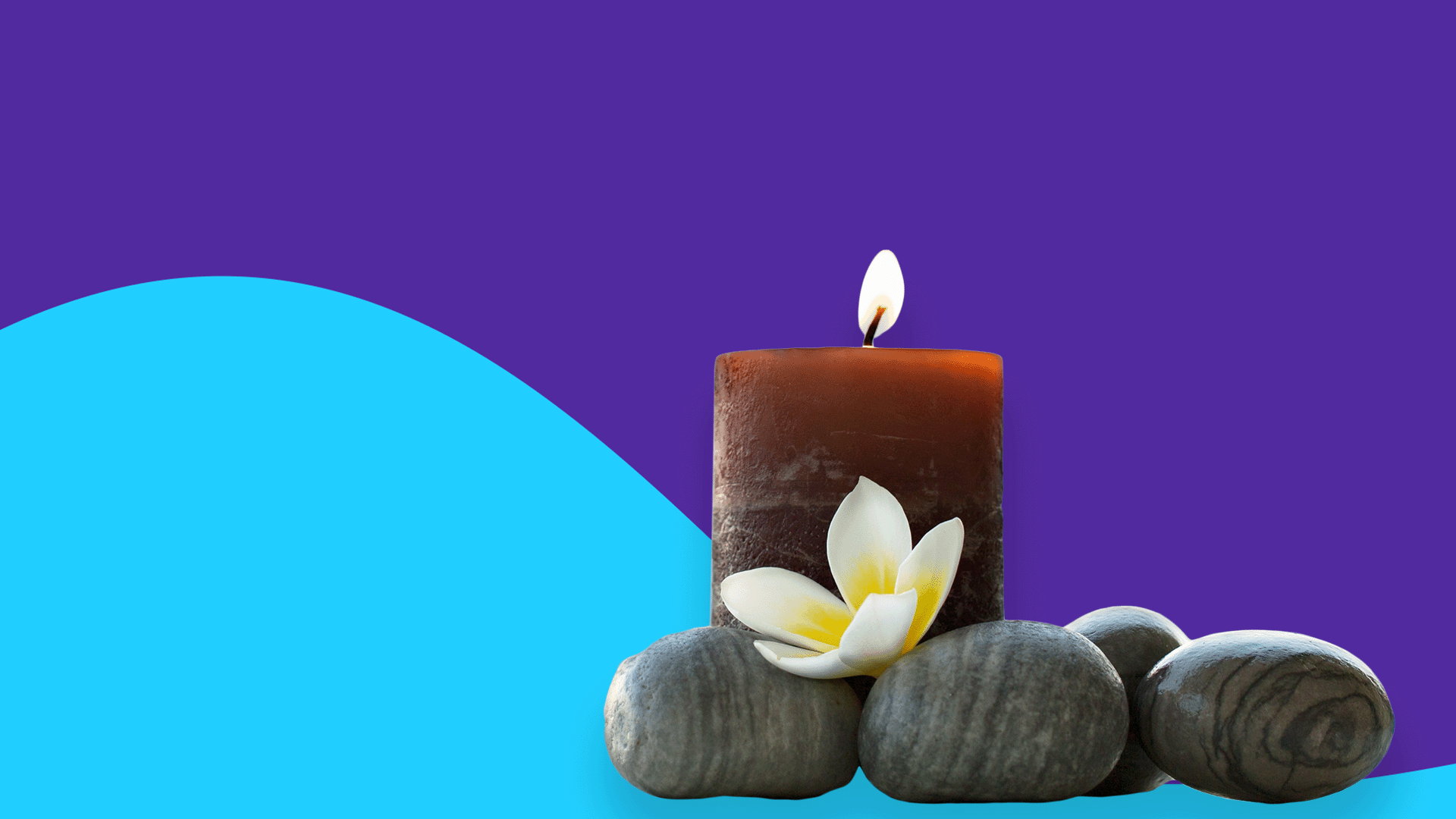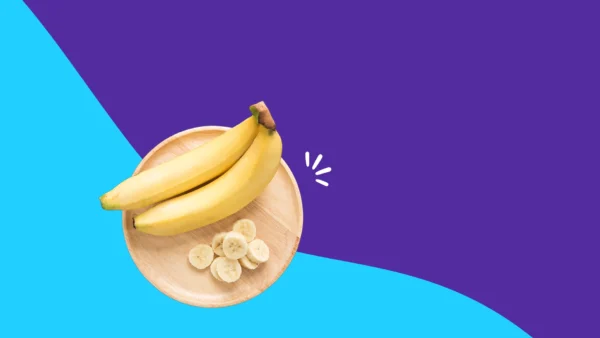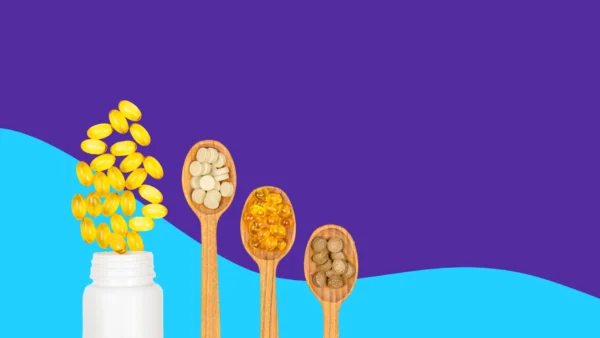Anxiety is the most prevalent mental health condition in the U.S. According to a SingleCare survey, 62% of people experience some anxiety. Thirty-one percent of adults will develop an anxiety disorder. Anxiety is more than just feeling stressed. It’s a chronic condition that may have a daily impact or only flare up periodically. Symptoms include persistent feelings of worry, racing or intrusive thoughts, which causes a fast heartbeat, sweating, difficulty concentrating, or trouble sleeping.
There are several types of anxiety disorders: generalized anxiety disorder, panic disorder, social anxiety disorder, phobias, obsessive compulsive disorder (OCD), post-traumatic stress disorder (PTSD), and separation anxiety (common in children). While it is important to seek medical attention for severe mental distress, there are several research-backed natural remedies that may decrease anxious feelings.
10 natural remedies for anxiety
These natural remedies can help alleviate anxiety without medication, or as complementary strategies alongside medication. Some home remedies for anxiety can help at the moment anxious feelings strike. Others require regular time investment. As with medication, what works for one person may not work for another, so it may take some trial and error to find the treatment that is right for you.
1. Exercise regularly
“Exercise is the number one recommended lifestyle change [for people with anxiety],” says Shana Feibel, DO, an attending psychiatrist and assistant professor at The University of Cincinnati College of Medicine. While yoga is commonly thought of as the best way to decrease stress and anxiety, any exercise you enjoy can be beneficial for your mental health. Any type of movement that gets your heart rate up releases beneficial brain chemicals, like endorphins, that improve mood.
“The best natural treatment for anxiety is physical activity such as walking,” says Sheldon Zablow, MD, a board-certified psychiatrist and author of Your Vitamins are Obsolete. “Ideally, it would be best to walk while listening to music or books. Develop a list of songs on your phone to listen to and think through the anxiety while walking.” Just be sure to check in with your healthcare provider when beginning a new workout routine, especially if you have health conditions that may be affected by exercise.
2. Practice mindfulness
Meditation and mindfulness techniques are highly effective ways to reduce baseline anxiety. They work by consciously changing your attention from anxious feelings to something else. Examples of mindfulness techniques include:
- Tapping
- Buzzing
- 3-3-3 rule: list three things you see, three things you hear, and move three parts of your body
Mindfulness can be as simple as distracting yourself from your emotions by reading a book or coloring in a coloring book to take your mind off your stress. The tactile activity of drawing or coloring helps people relax, as do other tasks like knitting.
3. Use breathing techniques
Diaphragmatic or timed breathing techniques help calm the nervous system. During anxiety or panic attacks, breathing often quickens as your body initiates the fight or flight response. Controlling the pace and depth of your respiration helps slow your heart rate down and signal to your brain that your body has nothing to fear.
4. Try alternative therapies
There are alternative therapies that have clinically proven beneficial results:
- Acupuncture: Using needles in pressure points activates the nervous system to help alleviate anxiety.
- Massage therapy: Many people find massage relaxing, which reduces anxiety, but it also has been shown to reduce cortisol (stress hormone) levels.
- Hypnosis: Similar to mindfulness but led by trained therapists, hypnosis helps ease the mind into a relaxed state through suggestion and other techniques.
- Aromatherapy: When used correctly, aromatherapy can impact the limbic system, which controls emotions in your brain and body.
These wellness strategies can partner well with other therapies or medication.
5. Employ adaptive tools
Adaptive tools were popularized in use with neurodiverse children but may benefit everyone.
- Weighted blankets, which were originally used for autistic children, are now popular with people of all ages, including anxious people, because of the calming effect of a heavy blanket. It’s usually recommended to get a blanket no more than 10% of the user’s body weight. Many report improved sleep and feelings of well-being when they use weighted blankets.
- Tactile tools, or something you do with your hands, are often used in pediatric occupational therapy. However, many adults find physical items like fidget spinners, textured hand-held tools, or doodling, help to decrease anxiety.
- Chewing gum, chewy or crunchy foods, or using a “chewy” toy has been proven to reduce anxiety. Some anxious test-takers find they perform better when they can chew something during tests.
6. Spend time outside
Spending time in nature has been clinically proven to reduce anxiety in adults. Some research shows that walking in a green environment can reduce feelings of stress. Another study said nature connectedness had positive outcomes for people’s mental health.
It can even help if you’re experiencing acute anxiety. Shocking the system with cold, fresh air or water can sometimes snap people out of anxiety attacks because it activates the sympathetic nervous system.
7. Try herbal teas
A cup of tea may help with relaxation—particularly herbal teas such as chamomile tea. There is some evidence that chamomile can reduce anxiety. And that’s not the only beneficial drink.
Green tea contains an amino acid called L-theanine that may improve stress and anxiety symptoms. While the evidence is limited, the ritual of taking a moment to yourself to sip a warm beverage can have relaxing effects beyond just the antioxidants that tea contains.
8. Prioritize leisure time
When we think of time off, leisure time, or self-care, it brings to mind feeling relaxed and free from worry. Indeed, taking time to do things for yourself outside of the confines of a work day or a day serving others can help reduce your stress.
“Creating a more relaxing work and/or home environment with pictures/paintings that are pleasing to the eye are recommended as well,” says Dr. Feibel. “In addition, listening to classical or soft music can be helpful for anxiety.”
9. Avoid alcohol and caffeine
A glass of wine might seem like it will help you relax, but alcohol and recreational drugs can exacerbate anxiety. Caffeine can exacerbate the jittery, edgy feeling common among people experiencing heightened anxiety. “Reduce or avoid self-medicating with caffeine, alcohol, or drugs,” Dr. Zablow recommends. “Resist isolating and inactivity.”
Additionally, both alcohol and caffeine can disrupt the sleep cycle, which leads to less restful sleep. Being tired may exacerbate feelings of anxiety and may decrease the ability to deal with everyday stressors.
10. Eat a healthy diet
An anti-inflammatory diet that nourishes your body can help your mental health. While the research is limited, consuming fresh fruit and vegetables, omega-3 fatty acids, water, probiotics, and even chocolate are considered part of a healthy lifestyle. In other words, it may help to try some of these swaps and see if they work to decrease your anxiety.
Anxiety remedies that don’t work
There are many old wives’ tales, myths, and misconceptions about treating anxiety. Some well-known remedies don’t work, lack evidence, or can actually do more harm than good, such as:
- Essential oils: While lavender, rose, citrus, bergamot, and other essential oils are often marketed as helping anxiety, many have not been studied enough to say that they help anxiety beyond the relaxing effect they might have on someone who enjoys their aromas.
- Herbal supplements: “Many herbal treatments are unregulated and of little benefit,” Dr. Zablow says. “They can cause harm when poorly made or if they contain contaminants.” Supplements are not regulated by the FDA, so there’s no guarantee that the claims they make are true or the ingredients they contain are safe.
- Marijuana, cannabis, and cannabidiol (CBD): Many people self-medicate with marijuana, cannabis, or cannabidiol (CBD). However, with overuse, dependence on the drug over time, or improper dosing, these remedies are ineffective or can make anxiety worse. Frequent marijuana use may also lead to other health issues like cyclic vomiting syndrome and respiratory issues.
Most importantly, do not stop your anxiety medication cold turkey in favor of natural remedies. Always talk to the prescriber before changing or stopping your medication. If you are dissatisfied with the results of your anti-anxiety medication, meet with your physician. You may need a dosage or medication change or you may benefit from adjunctive complementary therapies.
How to treat anxiety when natural remedies don’t work
If natural remedies don’t work as well as you would like, discuss with your healthcare provider. There are additional treatment options to you.
Therapy
There are many types of therapy to help with anxiety with proven, clinical studies to back up their claims of efficacy. Some types of therapy recommended for anxiety include:
- Psychotherapy or talk therapy, such as dialectical behavior therapy (DBT)
- Cognitive behavioral therapy (CBT)
- Acceptance and commitment therapy (ACT)
- Neurofeedback or biofeedback
- Occupational therapy (especially for children)
You may be referred to a specialist by your primary care doctor or you may be able to find a therapist in your area by searching via your insurance, the marketplace, word of mouth, or online databases.
You can also seek help via support groups, many of which are run by or affiliated with therapy practices. There are also support groups by condition or identity such as PTSD support groups for veterans and through the Anxiety and Depression Association of America.
Medication
Common prescription medication for anxiety fall into several categories including:
- Antidepressants
- Selective serotonin reuptake inhibitors (SSRIs) like Prozac (fluoxetine), Zoloft (sertraline), Paxil (paroxetine), Lexapro (escitalopram), or Celexa (citalopram).
- Selective norepinephrine reuptake inhibitors (SNRIs) like Effexor (venlafaxine) and Pristiq (desvenlafaxine)
- Tricyclic antidepressants like Tofranil (imipramine), and Vivactil (protriptyline)
- Beta-blockers such as Inderal (propranolol),
- Benzodiazepines such as Xanax (alprazolam), Librium (chlordiazepoxide), Valium (diazepam), Ativan (lorazepam), and Klonopin (clonazepam).
- Anti-anxiety medication such as Buspar (buspirone)
- Anti-seizure medication in small doses such as Lyrica (pregabalin) and Neurontin (gabapentin)
Many of these medications are not recommended for women wanting to be pregnant, pregnant women, people with certain health conditions, children, or teens. The medicine can be harmful to a fetus or may interact with other medications you are currently taking. “The art of psychiatry is finding the best balance of medications for each unique individual while minimizing the possible side-effects,” Dr. Zablow says. You may need to work with your healthcare provider or therapist to find the right medication, right dose, or perfect combination of medications for you.
When to see a doctor for anxiety symptoms
While life always has a certain degree of stress, if you are feeling overwhelmed, stressed, or unhappy consistently, it’s time to seek help. Dr. Zablow says: “A medical evaluation for anxiety should be sought when it is severe enough to interfere with normal daily function at work, at school, or in relationships.”
While anxiety is a possibility when you’re feeling stressed, some other conditions might have similar physical symptoms and need different treatment. Some conditions that mimic the symptoms of anxiety include:
- Thyroid disorders
- Diabetes or low blood sugar
- Cardiac conditions such as high blood pressure, palpitations, or heart disease
- Autoimmune conditions
- Dementia like Alzheimer’s
- Depression or other psychiatric conditions
Your healthcare provider can help determine what’s behind your anxious feelings.
No matter what the cause, you deserve help. If you have thoughts of suicide or self-harm, please seek help immediately. Go to your nearest emergency room or call a help line such as the National Suicide Prevention Hotline.











